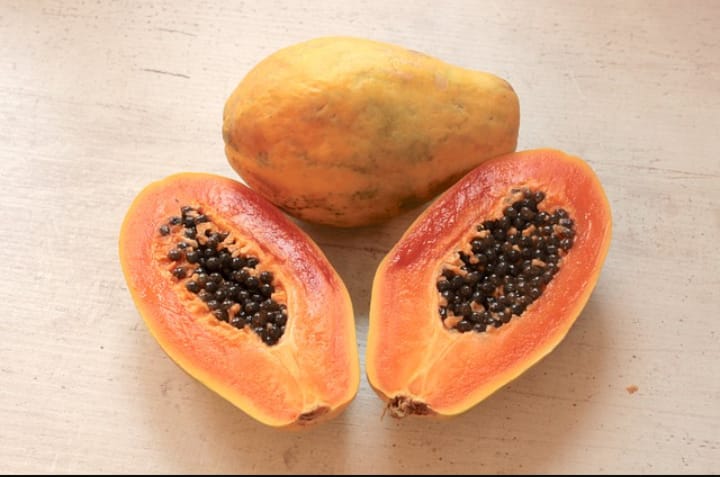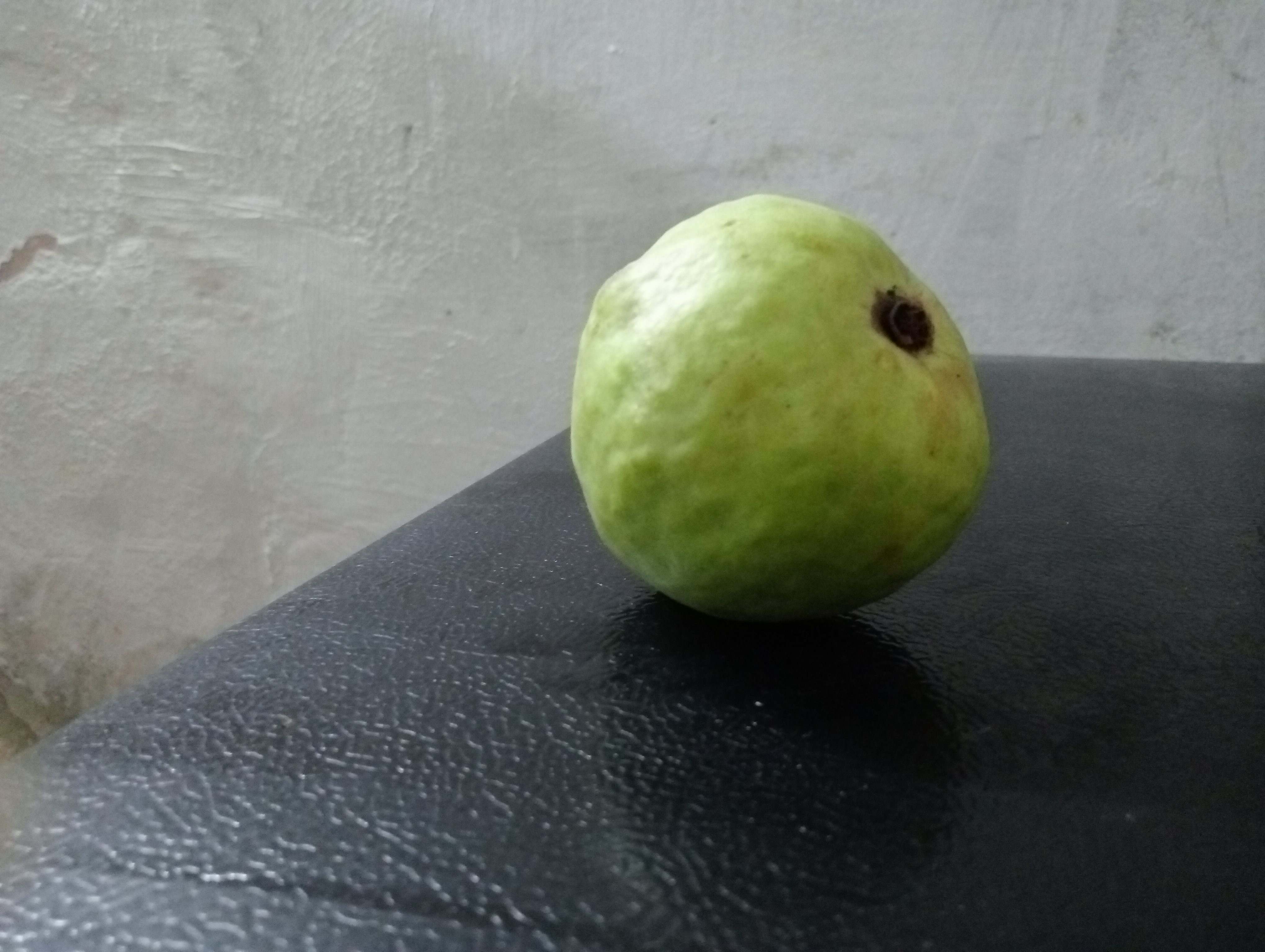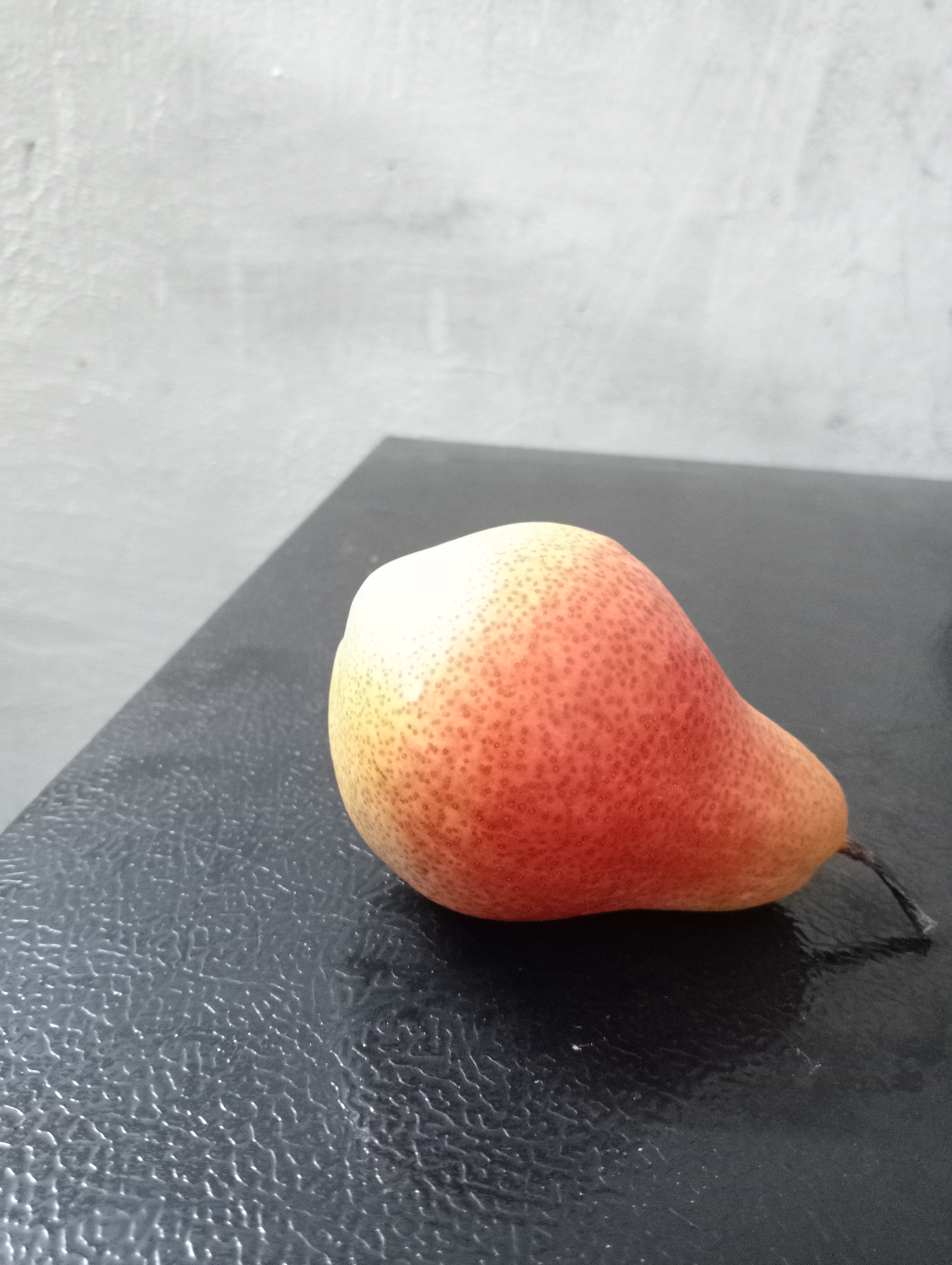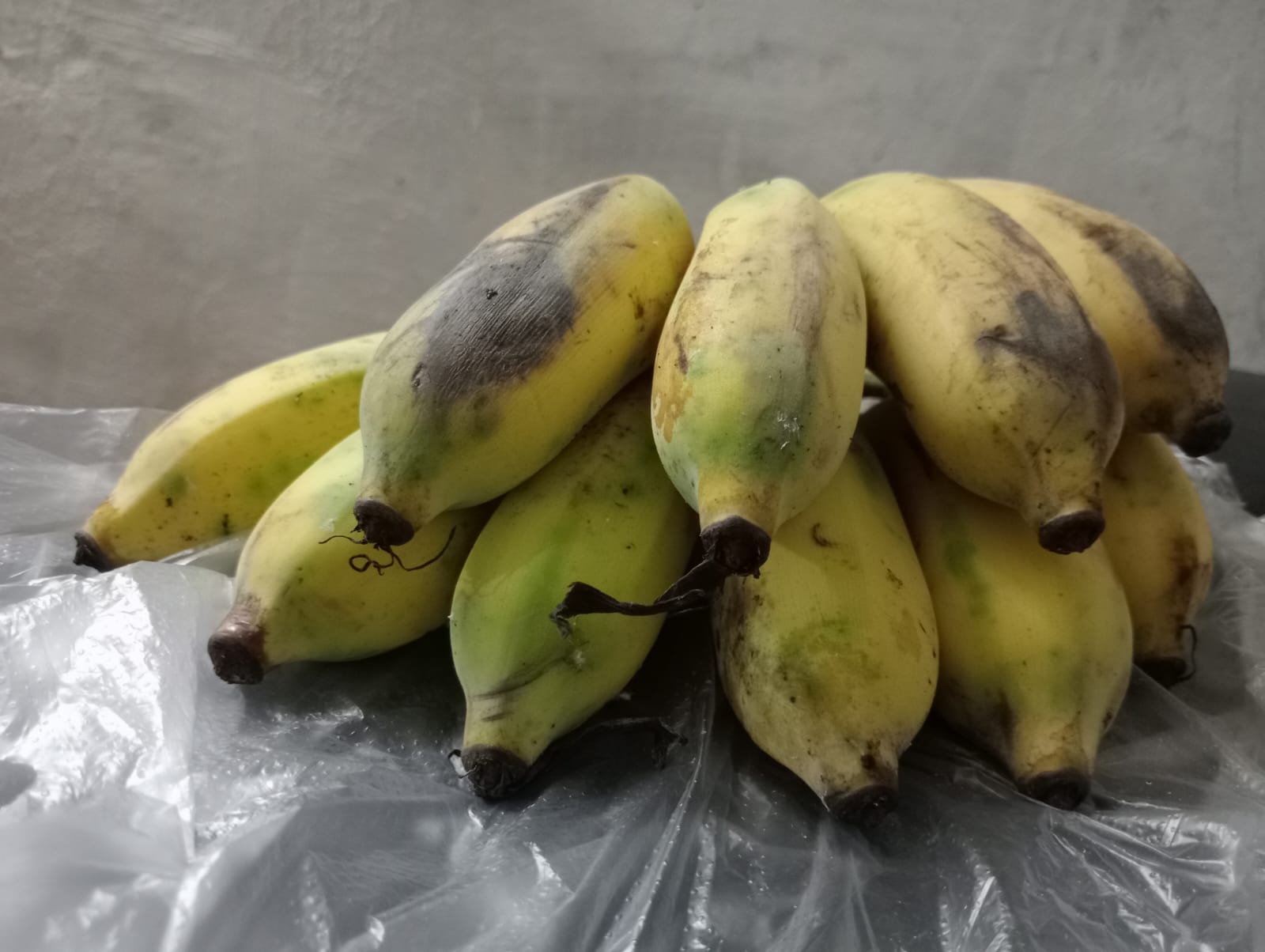Papaya fruit uses and benefits

When joined with squeezed orange, papaya goes about as a supportive natural product for processing, working with the breakdown of the last option. Papaya seeds, which are high in antioxidants and fibre, can help enhance one’s health and perhaps lose up to five kilogrammes when paired with warm water.
Papaya is an exemplary solution for stomach issues and a fantastic method for expanding our everyday intake of supplements. It contains beta-cryptoxanthin, which boosts immunity and facilitates the digestion of food proteins.
It aids in the digestion and regulation of the digestive system by facilitating the breakdown of meal proteins. Because of its high fibre content, it lowers the incidence of diverticular illness and haemorrhoids by preventing constipation. Papaya also has the ability to reduce cholesterol by as much as 10%.
Papaya is used in cosmetic goods and in the treatment of respiratory disorders, urinary tract infections, asthma, and bronchitis. It is thought to have anti-inflammatory qualities. Papaya reduces inflammation, which helps prevent heart disease, and vitamin C prevents low-density lipoprotein from oxidising.
Loaded with cancer prevention agents, papaya makes preparations for the harming impacts of free revolutionaries and brings down the gamble of stomach ulcers brought about by the Helicobacter pylori bacterium. Papaya contains collagen, which strengthens connective tissues and keeps wrinkles and a lack of skin suppleness at bay as we age.
Papaya’s vitamin C boosts iron absorption from plant-based diets and fortifies the immune system. Additionally, the regular oil of papayas, which is nourishing and rich in vitamins An and E, prevents dandruff on the scalp.
For the best possible hair development, oxygenated blood is essential for supplying nutrients and clearing waste from hair follicles. This vital function is facilitated by iron (Fe), a component of haemoglobin, which distributes oxygen from the lungs throughout the body.
Eating papaya promotes silence because it includes vitamin B9, which is essential for cell division and DNA blending.
Guava fruit: uses and benefits

The fruit guava is high in vitamin C and fibre and has several health advantages. It works well for treating conditions including diabetes, knee joint troubles, and blood pressure reduction. Its high fibre content contributes to a balanced diet. Guava can help women have less painful menstruation and maintain healthy blood sugar levels. It is essential for preserving immunity and improving heart health. Guava is a good choice for anyone limiting their calorie intake because it is low in fat and calories.
Guava, when taken as a dietary supplement, helps regulate body fat levels, which may result in weight loss. It’s also well recognised for encouraging skin health. Guava is a fruit that aids in digestion and relieves constipation.
When cooking anything in oil, using guava leaves helps keep the dish from absorbing too much of the oil. This is one useful tip about guava leaves. Another approach to reaping the advantages of guava leaves is to steep them in boiling water to make tea. Guava eating on a regular basis may help stave off illnesses, colds, and the flu.
Pear

Pears are a very nutrient-dense fruit that is high in dietary fibre and vitamin C, which helps to lower cholesterol and fat levels. With a mere 100 calories per pear, they support the body’s immune system as a whole.
Pears are also a rich source of iron, which helps the body deal with any possible haemoglobin issues. The fruit helps build stronger bones in kids, and manganese and copper are important components. Due to their high fibre content, pears help relieve the symptoms of gastritis and constipation, resulting in healthier skin with a natural shine. Pears are high in vital nutrients and low in calories. They are an excellent source of potassium, vitamin C, vitamin K, and antioxidants such as carotenoids and flavonoids. Eating pears with their skin on is healthy since the skin contains a substantial quantity of these nutrients. Pears are hydrating fruits that can help with overall hydration levels because of their high water content.
The antioxidants and high nutritional content of guava may be beneficial to heart health. Potassium, fibre, and cell reinforcements found in guavas lower cholesterol, reduce inflammation, manage blood pressure, and improve cardiovascular health in general.
The organic product has characteristics that can stop weight reduction, and the presence of minerals like vitamin A helps counteract night vision deficiency. Pears are well known for their capacity to prevent cancer and for helping to manage diabetes. The fruit also has a variety of digestive enzymes that support healthy digestion in general.
In addition to being a tasty fruit, pears are also a good source of nutrients and may be included in a balanced diet. When added to meals and snacks, pears have several health benefits and can improve overall wellbeing.
Banana

The banana is an important food for efficient digestion because of its high fibre content and diverse nutritional profile. Eating bananas on a daily basis helps prevent obesity by burning fat and maintaining a healthy body weight, particularly after exercise. The fruit promotes heart and bone health, which enhances general wellbeing. In addition to treating constipation and ulcer issues, bananas help regulate blood sugar levels.
One special benefit of bananas is their high potassium level. A vital mineral, potassium, is necessary for blood pressure regulation, heart health maintenance, and the maintenance of healthy muscle and neurone function. Bananas’ high potassium and fibre content decrease cholesterol, control blood pressure, and lessen the risk of cardiovascular disease, all of which are beneficial to heart health.
Manganese and potassium, two elements required for several body processes, are found in abundance in bananas. Additionally, bananas appear to be a beneficial and nutrient-dense option for people trying to gain weight.
Bananas are quite adaptable and delicious in a variety of ways. Fresh, they make a handy snack. Sliced, they may be mixed into yoghurt or morning cereals, blended into smoothies, baked into bread or muffins, or frozen to form a creamy dairy-free “nice cream.”